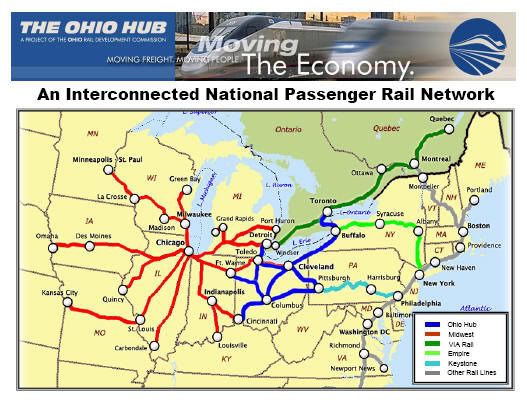 Disclaimer: I don't know what the hell I am doing, so this is not a How To. Actually, getting this done despite not knowing what the hell I am doing is kind of the point.
Disclaimer: I don't know what the hell I am doing, so this is not a How To. Actually, getting this done despite not knowing what the hell I am doing is kind of the point.A couple of weeks ago, I finally got serious about trying to get my rear derailleur back into action. It had seized up during the winter, and while I got some rear gears back at that time, I was down to three speeds on the front derailleur again.
So I was trying the dry lube, working it in on all joints, working the derailleur mechanism, and cleaning off the crud it was bringing up. Except no matter how progress I seemed to make, when I went to shift it, it seized up again. And then another round.
Until the cable snapped.
Fudge, now I had to change the cable. So I hit the internet to try to see what is involved with changing the cable. One of the first hits I got told me that when a derailleur is sticking, its normally the cable rather than the derailleur mechanism.
Aha, that sounded right. Lesson One: check the intertubes for advice first, before getting started on a new job.
I finally found the site for the people that made my shifter. You change a shifter cable by releasing it from the derailleur (check), feeding it up through the cable guides (check), then pull it out of the shifter after peeling the grip back to get to top of the cable (uh, no need to try to pull the shift mechanism apart). The cable was rusty enough to make it clear what the problem was ... that damned Northeast Ohio road salt would be one way to put it, but of course, that is not a part of the environment under my control. Lesson Two: oil your cables regularly in the winter, even if it is so bloody cold outside you don't want to go out to the garage.
Now, I had two cheap 5 speed shifters I got as part of the project to make a back-up ice-bike out of the cheap $60 fifteen speeds I bought to get to work at the warehouse last year. So I got one of the rear shift cables out of one of those, and got to work threading everything through again.
And, yes, I oiled the cable before threading it through each of the cable housings.
 I got the cable connected in, thanks to my handy ratchet set (Lesson Four: a lightweight ratchet set in the framebag sure is handy), cut it to length, and started working on the adjustment of the derailleur set screws, to get all seven rear gears back.
I got the cable connected in, thanks to my handy ratchet set (Lesson Four: a lightweight ratchet set in the framebag sure is handy), cut it to length, and started working on the adjustment of the derailleur set screws, to get all seven rear gears back.It took about two minutes of fiddling for the rear cable housing to fall apart. Ah, so it wasn't just the cable.
Rummaging around, I was able to find a front back cable housing that seemed like it would work for the last of the rear gearshift housings. It was a little longer, but it fit.
Well, except, ahem:
, cut it to length, and
Yup. Lesson Five: adjust, work it around, check that its all OK to go, and then cut. IOW, push the irreversible to the last, don't advance it to the first.
It was a hot day, and at this point I took a couple of hour break, and watched a DVD of The Third: The Girl with the Blue Eye (and, no, I don't have the $60 it costs, even on sale ... I rented it from Netflix). After finding the second of the five speed shifters, I started over. Lesson Six: when you have parts on sale for about the cost of shipping, go ahead and buy two. You never know when you'll need them.
To make a short story long, its now working.
Which is all a long prelude to a short reflection. Before the internet, I would have been walking to the library for a book on bike repair, then heading off to the other end of the bus line plus a half hour walk past that to the bike shop (one decent bus route in the whole county, which doesn't connect up to Akron's bus route system, and the Bike Shop is past the end of it ... there's a lesson in the heavy hand of Auto-Uber-Alles development in outer suburbia) ... and of course, the task would probably have been spread over multiple days.
 Mind, its fairly convenient to the (not yet complete) recreational biking trails, but that's handier when the bike cycles than when it doesn't.
Mind, its fairly convenient to the (not yet complete) recreational biking trails, but that's handier when the bike cycles than when it doesn't.Instead, I saw the five speed shifters on sale at [http://www.nashbar.com/ Bike Nashbar], so I had the cable on hand (just the luck of the standard set, since what need replacing was the shifter), found advice on changing derailleur cables in about ten minutes, and the product specific guide from the manufacturer in another five.
While newspapers try to work out how to commercialize the news that they used to give away for free as wrapper for display ads and classifieds, protected by the economies of scale of the printing press ... the internet continues to offer access to information with growing efficiency.
Enough efficiency that even I could go from near total ignorance to changing my rear shift cable in under an afternoon.
Of course, someone might object that the online ordering of the five speed shifters is not resting on a sustainable foundation. However, I could see an electric rail network getting that order from the warehouse to nearby here ... certainly near enough for an electric delivery truck to get it to some central location within walking distance. I could even imagined the tick box option for the big brown electric UPS van to get the box to my house (for, obviously, a higher shipping charge than getting it to the local pick up center).
Indeed, its far more materially efficient for me to borrow the use of the existing UPS truck once or twice a month than to own a car so that I can drive to the mall or other place to spend money I would no longer have if I owned a car.
The question of whether the recovery from the mass market consumerist fever is an economic calamity or an economic opportunity seems to hinge on whether we can share the existing work around. If we can, its possible for many people to increase their real standard of living, even as market transactions are shouldered aside by social interactions.
I certainly was far better off being able to find out how to get my rear shift cable fixed in a single afternoon than I would have been without access to the internet ... and that is, partly, because of getting rid of the need to spend money. So that was a direct transfer from markets transactions to standard of living.
 On Agent Orange,
On Agent Orange,  Certainly, as our economy has evolved in the past three decades, debt-financed consumption has become the largest of the four sources of new injections into Aggregate Demand:
Certainly, as our economy has evolved in the past three decades, debt-financed consumption has become the largest of the four sources of new injections into Aggregate Demand: If you wander around the fringes of economic discussion on these Interwebs, you may encounter sites extolling the wondrous vitrues of the VAT. "If only we would adopt a massive VAT, our two decade long decline in manufacturing output would be gone, and we would be an exporting powerhouse once again." ... well, no, that would be a stereotyping of the argument. A real sample of the claims sound more like this, from
If you wander around the fringes of economic discussion on these Interwebs, you may encounter sites extolling the wondrous vitrues of the VAT. "If only we would adopt a massive VAT, our two decade long decline in manufacturing output would be gone, and we would be an exporting powerhouse once again." ... well, no, that would be a stereotyping of the argument. A real sample of the claims sound more like this, from  Now, if the US wishes to pursue the neo-mercantalist policies of China, most of Southeast Asia, and etcetera ... what would that policy package be?
Now, if the US wishes to pursue the neo-mercantalist policies of China, most of Southeast Asia, and etcetera ... what would that policy package be?
